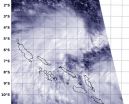Water: The province of provinces
Concordia University research shows that decentralization is the healthy choice for Canadian water regulation
2015-06-30
(Press-News.org) This news release is available in French.
Montreal, June 30, 2015 -- Unsafe drinking water is a topic usually connected to the developing world. But the regular recurrence of boil-water advisories, and widely publicised outbreaks in towns like Walkerton and Kashechewan have shown that, even in Canada, clean water cannot be taken for granted.
The increased scrutiny that arose from such issues has resulted in widespread criticism of the uneven drinking water regulation among Canada's provinces and territories.. However, centralizing water regulation is not necessarily the baest solution, according to new research from Concordia University.
In a paper recently published in the International Journal of Water, civil engineering graduate Ryan Calder evaluates claims that more centralized US-style regulation of drinking water would improve outcomes for Canadians. The paper finds limited support for these claims but suggests they reflect deeply held Canadian political and cultural values.
"Environmental advocacy groups in Canada routinely decry the inconsistencies between provinces and push for US-style centralized regulation as a way to improve water quality," says Calder, who is now a doctoral candidate at the Harvard T.H. Chan School of Public Health. "This paper is the first rigorously examine these claims, and it finds that tighter regulation at the federal level would not likely improve outcomes."
Using risk management theory, Calder and co-author Ketra Schmitt from the Centre for Engineering in Society found that environmental advocates are more influenced by the distinctly Canadian values of equality and solidarity than by actual evidence for improved outcomes.
The study shows that the Canadian public are only likely to support decentralization if provinces and territories are actively allocating public funds to public health initiatives in proportion with the magnitude of risks.
"Decentralization presents a theoretical benefit that is largely borne out by the evidence," says Calder. "Local decision-making allows different populations to tailor spending to their particular circumstances, without undermining 'equity.' We actually found that the Canadian and American experiences with centralization have led to more permissive standards than might otherwise exist if the risks were addressed locally."
Calder suggests that, rather than repeating the work of provincial and territorial regulators, federal resources should be put towards insuring access to safe water. He also notes that the federal government should embrace its role as a facilitator of decision-making on a local level if it is to respond to legitimate criticisms and promote good governance of drinking water well into the 21st century.
INFORMATION:
Related links:
Cited stud
Department of Building, Civil and Environmental Engineering
Ryan Calder's website
Media contact:
Cléa Desjardins
Senior advisor, media relations
University Communications Services
Concordia University
Phone: 514-848-2424, ext. 5068
Email: clea.desjardins@concordia.ca
Web: http://www.concordia.ca/now/media-relations
Twitter: @CleaDesjardins
ELSE PRESS RELEASES FROM THIS DATE:
2015-06-30
The Southern Pacific Ocean Tropical Cyclone Season just got an extension with the birth of a new tropical depression near the Solomon Islands. NASA's Aqua satellite passed over the new depression and saw that it was already affecting some of the islands.
The Solomon Islands make up a nation that consists of hundreds of islands in the South Pacific.
The MODIS or Moderate Resolution Imaging Spectroradiometer instrument aboard NASA's Aqua satellite captured a visible image of Tropical Depression 25P as it was forming in the Southern Pacific, just north of the Solomon ...
2015-06-30
NASA-NOAA's Suomi NPP Satellite passed over the newborn ninth tropical depression of the Northwestern Pacific Ocean typhoon season on June 30.
At 02:55 UTC (10:55 p.m. EDT, June 29), the VIIRS or Visible Infrared Imaging Radiometer Suite (VIIRS) instrument aboard NASA-NOAA's Suomi satellite captured a visible image of the newly developed depression. The VIIRS image revealed bands of thunderstorms wrapping into the low-level center from the north and western quadrants.
VIIRS collects visible and infrared imagery and global observations of land, atmosphere, cryosphere ...
2015-06-30
CHICAGO -- While studying Yersinia pestis, the bacteria responsible for epidemics of plague such as the Black Death, Wyndham Lathem, Ph.D., assistant professor in microbiology-immunology at Northwestern University Feinberg School of Medicine, found a single small genetic change that fundamentally influenced the evolution of the deadly pathogen, and thus the course of human history.
In a paper published in Nature Communications, Lathem and first author Daniel Zimbler, Ph.D., a Feinberg post-doctoral fellow, demonstrated how the acquisition of a single gene caused the ...
2015-06-30
June 30, 2015, NEW YORK -- A new animal study by NYU Langone Medical Center researchers adds to growing evidence that multiple courses of commonly used antibiotics may have a significant impact on children's development.
In the study, to be published online June 30 by the journal Nature Communications, female mice treated with two classes of widely used childhood antibiotics gained more weight and developed larger bones than untreated mice. Both of the antibiotics also disrupted the gut microbiome, the trillions of microbes that inhabit the intestinal tract.
Overall, ...
2015-06-30
Washington, DC - June 30, 2015 - A new report released today from the Institute of Medicine calls for a campaign to promote public education and training opportunities to reduce barriers to the provision of bystander CPR and defibrillation.
Annual rates of CPR and AED use by bystanders remain less than three percent in the United States even though evidence indicates that its use significantly improves cardiac arrest survival. The American Red Cross strongly supports the IOM's recommendation to encourage training through employers, local public health departments, schools ...
2015-06-30
Bethesda, MD (June 30, 2015) -- Both spouses and first-degree relatives of patients with celiac disease are at increased risk of nonceliac autoimmune disease, according to a study in the July issue of Clinical Gastroenterology and Hepatology, the official clinical practice journal of the American Gastroenterological Association. This risk represents a mixture of genetic, environmental and ascertainment bias mechanisms.
"The prevalence of celiac disease in first-degree relatives of individuals with celiac is approximately 10 percent. Despite these findings, little is ...
2015-06-30
Bethesda, MD (June 30, 2015) -- Pinaverium offers quick and effective relief of irritable bowel syndrome (IBS) symptoms, according to clinical trial results published in Clinical Gastroenterology and Hepatology, the official clinical practice journal of the American Gastroenterological Association.
Pinaverium bromide (pinaverium), an antispasmodic, is used widely in many countries around the world, including European countries, Canada and Mexico. However, original clinical studies on pinaverium are scarce and there has been no convincing evidence for its effectiveness ...
2015-06-30
Although vitamin A supplementation can have profound health benefits when someone is deficient, new evidence is emerging to show that vitamin A supplementation above and beyond normal levels may have negative health consequences. A new research report published in the July 2015 issue of the Journal of Leukocyte Biology may help to explain why too much vitamin A can be harmful. Too much vitamin A shuts down the body's trained immunity, opening the door to infections to which we would otherwise be immune. This study adds to the arguments that vitamin A supplementation should ...
2015-06-30
WASHINGTON, D.C. - The amount of water required to hydraulically fracture oil and gas wells varies widely across the country, according to the first national-scale analysis and map of hydraulic fracturing water usage detailed in a new study accepted for publication in Water Resources Research, a journal of the American Geophysical Union. The research found that water volumes for hydraulic fracturing averaged within watersheds across the United States range from as little as roughly 9,800 liters (2,600 gallons) to as much as 37 million liters (9.7 million gallons) per well.
In ...
2015-06-30
A new report published in the July 2015 issue of The FASEB Journal suggests that a common molecule found in higher animals, including humans, affects brain structure. This molecule may play a significant role in how brain cells communicate, possibly shedding light on the underlying causes of certain brain disorders. The study, involving mice, shows that small changes in how sialic acid attaches to cell surfaces result in damaging effects on brain structure, poor motor skills, hyperactivity, and difficulty in learning.
"Sialic acid is part of the molecular language that ...
LAST 30 PRESS RELEASES:
[Press-News.org] Water: The province of provinces
Concordia University research shows that decentralization is the healthy choice for Canadian water regulation


